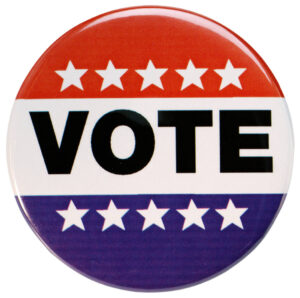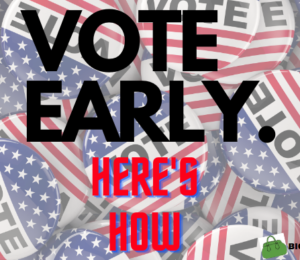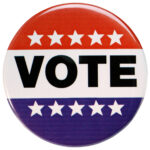My apologies to any of you who are elated with the results of yesterday’s elections. And my condolences to any of you who think that the world has come to an end.
I’m in neither camp.
Though I still canvas, and phone bank, and vote for candidates I support, I’ve come to terms with the limitations our political system imposes on any candidate who is “lucky” enough to be elected. The reality is, we live in a polarized world run by people who are convinced that creating more polarization is more important than creating civil society or protecting the planet. Yes, it would be grand if our political leaders could collaborate and compromise, not in the name of power, but in the name of the people. But is that going to happen? As we have been reminded, ironically, ever since the last major “candidate for change” was elected two years ago — and repudiated yesterday — not any time soon.
Nevertheless, we are not helpless. If anything, yesterday’s elections have reinforced how important it is for you and me to continue to make meaningful changes that offer direct and measurable benefits. I’m talking about turning off our own lights, or insulating our own homes, or buying products that save energy or contain no toxic chemicals, actions which may seem insignificant, but are not.
Can we make a difference, even if our elected officials don’t?
In a 2009 interview with National Public Radio, Harvard University Professor Michael Vanderbergh reported that the individual actions we take, like weatherizing our houses, changing the way we drive, moderating thermostat settings, and focusing purchasing on the greenest products available, can significantly help reduce climate change.
The co-author of “Household Actions Can Provide a Behavioral Wedge to Rapidly Reduce U.S. Carbon Emissions,” Prof. Vanderbergh noted, “Household behavior in the U.S. makes up about eight percent of the world share of greenhouse gas emissions. It’s larger than any country other than China. We estimate that [consumer behavior changes] could reduce U.S. greenhouse gas emissions by 123 million metric tons or seven percent within 10 years…That’s equivalent to the total emissions of France. It’s also equivalent to the emissions of the petroleum refining, iron and steel and aluminum industries combined.
“One of the largest problems we face is getting over the presumption … that individual behavior or household behavior doesn’t matter. But when you aggregate it across 300 million individuals and 100 million households, it has a very large impact on total U.S. greenhouse gas emissions.”
In other words, whether politicians take action or not, what we do matters, and in a big way.
Don’t get me wrong. I would love to see Congress pass sweeping climate change legislation and the Safe Kids Act while building more mass transit systems and transferring agricultural subsidies to organic farmers rather than those who douse their fields with pesticides. And I’ll continue to lobby my Congressional Representative and Senators to tow those lines.
But on a grand scale? If significant legislative achievements didn’t happen when a sympathetic political party controlled both houses of Congress and the White House, they’re sure not going to happen now.
I’m going to keep doing the things I can do because I know they make a difference to me, my family, and my community.
I hope you will, too.

















5 thoughts on “Politics Shmolitics. You Can Still Make a Difference Based on How You Live and What You Buy.”
Absolutely, Diane! And a good reminder.
I especially appreciated that 7% statistic – was not familiar with it.
Thanks for the inspiration Diane! I’m glad to know about that household behavior study. Good fuel for the fire against people who say individual actions don’t matter.
Diane – what do you think of charitable shopping – like pungle.org?
Thank you so much for that reminder that individuals can make a difference! We need to hear that after an election day like we just had.
Terrific post! You’ve reminded me that it’s so important to focus on the things that we can control. Our individual choices are political –and they can be powerful. Many of the things you mention that we can do to help our environment, such as buying greener products, can also help reduce the growing influence corporatons have on our political system. I see it as interrelated and will be boycotting those businesses(and their products) owned by certain contributors to certain campaigns.These businesses always seem to be environmental offenders. Anyway, just thought I’d throw that out there.
I’m reading your blog for the first time. It’s very informative. I look forward to coming back and exploring more links.
Comments are closed.